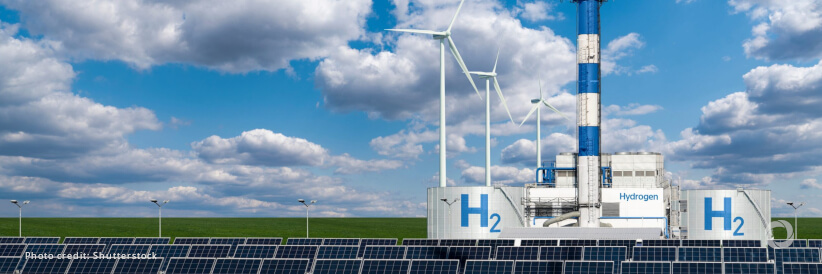The Commission announced the selection of 15 renewable hydrogen production projects for public funding across the European Economic Area (EEA). The projects, located across five countries, are expected to produce nearly 2.2 million tonnes of renewable hydrogen over ten years, avoiding more than 15 million tonnes of CO₂ emissions.
The hydrogen will be produced in sectors such as transportation, the chemical industry, or the production of methanol and ammonia. They will receive a total of €992 million in EU funding, from the Innovation Fund sourced from the EU Emissions Trading System (ETS).
The winning bidders, awarded after the second European Hydrogen Bank (EHB) auction, will produce renewable hydrogen in Europe with a subsidy that will help to close the price difference between their production costs and the market price and accelerate the deployment of cleaner fuels.
The auctions of the European Hydrogen Bank contribute to scaling up renewable hydrogen, which in turn will help replace natural gas, coal, and oil in hard-to-decarbonise industries and transport sectors. Producing more renewable hydrogen will decrease the use of fossil fuels on our continent and increase the EU’s energy independence and positively impacting security, jobs, and the decarbonisation of European industry.
Of the selected projects, 12 are committed to producing renewable hydrogen with fixed premium support between €0.20 and €0.60 per kilogramme. For the first time, the auction provided a dedicated budget for hydrogen producers with off-takers in the maritime sector, which are entities using the hydrogen produced by the project for carrying out or making use of bunkering activities. This has resulted in the selection of three bids receiving €96.7 million in grants. These projects will require between €0.45 and €1.88 per kilogramme. Each subsidy for the 15 projects ranges from €8 million and €246 million over up to 10 years.
In parallel, Spain, Lithuania, and Austria are allocating up to €836 million in national funding for projects in their countries through the ‘Auctions-as-a-Service’ feature. This allows Member States to identify and fund eligible projects in their territories that meet the auction’s qualification criteria but cannot be funded by the Innovation Fund due to budgetary limitations. ‘Auctions-as-a-service’ is open to all Member States, enabling them to benefit from the EU-level auction platform and award national funding to additional projects with a simplified procedure.

